Will ’08 Be The Year For Desktop Linux?
Something not mentioned too often in year-in-review articles is that a ton of people tried out Linux for the first time. While it’s true Linux didn’t stick around as their primary OS for most, the fact so many people tried it out is a huge step towards making Linux more mainstream.
This brings several things to light:
- Linux awareness is much higher. Mention it to a friend and there’s a high chance that friend actually knows what you’re talking about instead of giving back a deer-in-the-headlights look.
- Interest in using Linux has spread. Many people took the time to download a distribution, burn it to a disc, pop it in their computers and try it out. Whether it was a CD-sized distro like Ubuntu or DVD-sized like Sabayon, many actually took the time to go thru the whole process just to see what it was all about. And even if it didn’t work to expectations, the fact people tried is what counts.
- There is a continued interest in Linux. Even for those that did try Linux (including yours truly) and didn’t particularly care for it, many are watching the distros in the hopes something will come around that will allow us to use a free operating system full time. You can scan over DistroWatch.com right now to see all the popular distros. If you’re wondering "So.. what’s out there that’s available and in wide use?", DistroWatch is where you want to be.
What attracts people to Linux?
You can go on all day about Linux reliability, the huge list of open source software available for it, the speedy nature of the OS and so forth. None of that is in dispute. But I’ve found what attracts people most to Linux are three things.
1. The price tag.
It’s free. Free is good. It is nothing short of amazing that you can download an entire OS that’s truly usable and not cost a dime.
2. Breathes new life into older computers.
Many of us have an older computer lying around somewhere that was probably relegated to the closet years ago because it’s just too darn slow. Maybe it’s an older box that’s too slow for XP or OS X. Dusting off that box and installing a lightweight Linux distro will turn it back into a usable computer again in many instances.
3. Escaping corporate shackles.
A growing number of people are developing large disdain for retail operating systems because, simply put, they don’t feel they’re getting their money’s worth.
This disdain can be summed up in one question:
If seemingly no one can deliver a retail operating system that works 100% on delivery, what’s the point in paying for it?
Even if Linux doesn’t do everything in exact perfection, the paid OS offerings don’t seem to be much better. So if we have foreknowledge that yes, there’s going to be issues.. why pay?
What will turn me over to Linux completely?
I talk the talk, but can I walk the walk?
Said very plainly: I want to have a setup that is more or less identical to Dave’s (owner of PCMech).
Dave doesn’t use Linux. He uses a Mac Pro. On that Mac he uses OS X 10.5.1 (a certified Unix OS) natively but on one of his screens has Windows XP running full time in a virtual environment. At any time when he needs to do some Windows-only stuff, he just switches over to that screen, does what he has to do, then goes right back to OS X.
This to me is an ideal setup because it makes the transition from Windows to OS X gradual; the learning curve is far more manageable and you don’t have to have separate computers.
My vision, if you will, is to do the exact same thing except having a Linux as the primary OS and XP in a virtual environment. This will afford me the opportunity of using Linux full time while still having the convenience of going to XP on an as-needed basis.
For the Linux fans that read this, I already can hear you saying "But you can do that already!"
Yes, I know you can do XP virtually right now in Linux using VMWare server.
My issue is that the desktop environment in Linux hasn’t really gotten the multi-monitor thing right just yet. Multi-monitor (particularly for those with nVidia video cards) runs great with some distros but still has a bit of development to go.
However, the time when desktop environments in Linux do multi-monitor correctly – on first attempt to use – is very, very close.
Will Ubuntu 8 be the catalyst?
Lots of eyes are on Ubuntu 8 right now and so are mine. If I may make a bold prediction, that distro may be the one that truly kicks Linux into high gear as a replacement OS.
Ubuntu 7.10, while great, is an "almost there" OS in my estimation. In the way it works it is so close.. oh so close.. to being the be-all/do-all OS that people can easily use without the need to go to the command line. But at present you still have to do that.
It’s not that I can’t get around a bash prompt, but manually editing an xorg.conf file in vim just to get dual-monitor working is a bit ridiculous considering that Windows and OS X can do it easily direct from the GUI.
The validated hardware for Ubuntu is growing exponentially, so when 8 comes around, it’s very likely that everything I use now will be 100% compatible – and not just internal hardware. Digital cameras, camcorders, printers, specialized mice, keyboards and the like should all recognize without issue.
Seriously speaking, I would consider it quite cool to run a box not powered by an OS that has a logo of a multi-colored flag or a fruit. The price is right, the time is near, and I’m crossing fingers…






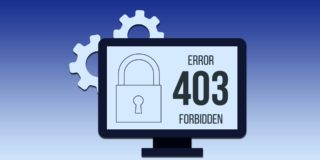

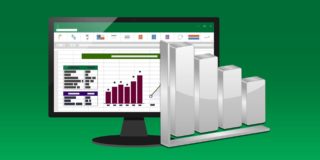
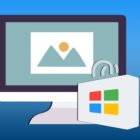



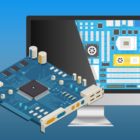
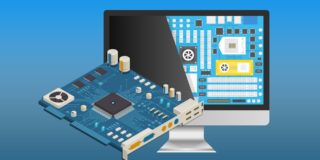


12 thoughts on “Will ’08 Be The Year For Desktop Linux?”
And I’m not going to argue over the semantics of the word Linux. No one has ever mistaken Linux in-title-only for OS X or Windows. If people were confusing Linux based OSes as a Microsoft or Apple product, then the semantics would count. That’s not the case; no one cares.
..in true GNU/Linux nerd fashion.. would be more correct ;)
Like the baud rate/bit rate distinction it’s important to understand the real definition of Linux otherwise any comments relating to it simply don’t make any sense, like saying (for example) Ubuntu is Linux, that’s a totally incorrect statement.
Yes it’s true, I have an obsessive urge to fix errors and a bit of Windows bashing is good for the soul, after all there’s FAR more pointless and uninformed “Linux” bashing out there from the Microsoft camp, so it’s appropriate to try and redress the balance now and again :D
And in true Linux nerd fashion, you took the opportunity to bash Windows users. Classic!
One wonders if you can you make a point without putting down Windows users or correcting? Nah, probably not. But your comment was entertaining. :-)
I don’t see how anyone can complain about something that has cost them NO money, maybe if Ubuntu (which I don’t use, I prefer Gentoo) cost $100 they might have a legitimate argument.
The main problem Windows users have with Linux kernel based OS’s is the fact that you actually need some intelligence to use it properly and the lack of brain power plus non logical thought processes (and complete ignorance of the facts) is reflected in some of the comments above.
The year of “Desktop Linux” occurred circa 2004 as far as I’m concerned.
Perhaps you should rename this article “Will ’08 Be The Year of Desktop Linux For Dummies?” :p
To date Gutsy is the best release yet with more hardware support than ever and it’s stable. It may lack some polish, but it is useable, easy to get going and comes with a lot of sensible features out of the box.
Once I change over to Linux I wont go back.
Regardless of how we got here, Linux is rapidly approaching the ‘grandma’ stage of development with the commercial & community efforts we see in most of the major distros. I’ll be moving my friends, family, and clients over to it slowly — starting this year — instead of upgrading anyone to Vista, principally because of its ridiculous prioritization of DRM over performance.
A couple tips as well: Virtualbox has been very good to me in place of VMware, and it’s open source; PCLinuxOS, Mepis, and Fedora make fairly easy KDE distros; Ubuntu and Mint make very easy Gnome distros. Also keep an eye on the gOS Ubuntu derivative. At the moment, multi-monitor is a pain for a new user but it’s a one-time thing. Linux makes multiple desktops as easy as pie whereas most Windows users have no clue that it’s even possible.
Linux is for geeks. CLI ?? Cmon, this is 2008 NOT 1968. We got mice and big screens, please do use them and maybe then it will make some sense but not before that.
There are no standards, every distro’s got its own way of going about just to make it work….What’s with that ?
When linux recognizes that ppl want something that just works and when they abandon that CLI crap, when thay make it compatible with like what 3 bilion other distros around then maybe just maybe they will have some sucess. Until then it’s just a OS for ppl with no friends or girlfriends also known as geeks.
Linux’s saving grace is that it’s the only OS that I know of you can try without buying anything, and also use without buying anything.
Maybe it doesn’t have Big Retail support (other than server editions) but that price is oh so nice.
Personally speaking, I’m not looking for a Windows or OS X killer. I just want something that does everything I can do in XP now other than Mac. Ubuntu 7.10 was really, *really* close. This is why I cross fingers for Ubuntu 8.
Linux is crippled by the fact that there is no profit in it and therefore there is no money to pay people to write the code….at least not like Windows or Apple software. You can only get so much work out of volunteers…after that, they need to get paid.
Good article, I agree with you. Hardy Heron could just be revolutionary enough.